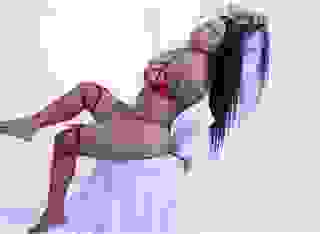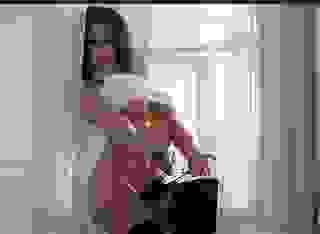Note: You can change font size, font face, and turn on dark mode by clicking the "A" icon tab in the Story Info Box.
You can temporarily switch back to a Classic Literotica® experience during our ongoing public Beta testing. Please consider leaving feedback on issues you experience or suggest improvements.
Click here"I'm not sure...?"
And in the next instant Timothy was in the sea, adrift on vast rolling swells, carried along helplessly as the earth rumbled far below, deep within unseen layers rock, deep inside the earth. He turned, watched his father trying to run, staggering to his mother's side, covering her with his shield -- and he thought this must be an earthquake... Then, of course -- that fast breaking flow, after the giant, inrushing wave plucked him from shore and carried him out to sea. But why was he was so far from land now -- so far out to sea? How had that happened?
Then he saw his father, Odysseus, calling to him from the cliffs. Running now, down through cascades of falling rock, running for the shore -- and Telemachus felt something, or someone -- pulling on his clothing...from below...
'A shark? It must be a shark...'
Cold panic gripped his heart and he jerked around, saw shadows of shadows passing just below, down there in the infinite darkness, but what was it? What did he see...?
There was a commotion in the water and he turned again, found the dolphin's smiling face next to his, the two scars under it's eye like an echo -- and he smiled as, like autumn's tides, floods of memory came rushing in...washing over him...again.
And just as suddenly he was back in darkness, the pulsing star still in hand -- and he looked at it with wonder in his eyes. Another coronal loop broke free of the surface and streaked for his eyes...
And Carpenter could feel he is in the room again, looking at the fluxing glow of instruments marching on the ceiling when another light appeared, and he could see that Jew doctor -- Rosenberg, Rosenstein, something like that -- and that negress, the one with the faraway eyes... And Lewis too, from his Secret Service detail...he's with them now...and only then does he feel truly safe...
"How are you feeling this evening, Mr President?" the Jew asked.
"Fine...much better, I think. They tell me you performed a heart transplant? Is that about the size of it?"
"It is, sir. It was, really, something of a miracle we were able to locate a donor here in the city, but I guess sometime these things happen for a reason."
He looked at the negress, the way she turned away as the doctor spoke and he looked at Ted Lewis, his chief of detail. "Ted? Anything going on back at The House I need to know about?"
"No sir, Mr President, although Didi seems to have taken a shine to Vice President Smithfield, sir."
He grumbled about the perfidy of female dogs. "Grover? Really? Well, we'll have to see about that."
"Mr President," the physician began again, "we'll have a coordinator from our post-op care team talk to you..."
"Doctor? Ted will give you the names of the people they need to speak to. When can I get the hell out of this shithole? I've got work to do..."
After they left he turned on the television, watched CNN for a while, then he flipped over to an old movie channel. A Kurosawa film was just starting...Ikiru, one he'd heard was worth a look...so he settled in to watch -- but was soon yawning and fell asleep.
He dreamed of Ruth, of her cancer and the way she fought, the hope in her eyes shining bright right up to the end, and somewhere in the dream he felt someone wiping his arm with alcohol, drawing blood, and he thought of illness, the miracle of medicine -- and the scourge of superstition. How many centuries had it taken to push aside those curtains of darkness? And yet, why was he working so hard to roll back the clock...? And -- hadn't he been doing just that all his political life?
He woke in time to see a man on a swing-set, snow falling gently on the scene, and he listened, listened to the power and the glory of the human heart in the song the withered man sang. Something about the symmetry in the scene, the gentle, slowing motion of the man, the words of the song that pulled him inward, that pulled at his humanity. Then he saw Ted Lewis still standing faithfully by the door, watching the last of the film, wiping a tear from his eye -- and he wondered about this man who had sworn to protect him -- at all cost.
"How was it, Ted? Worth watching?"
"Mr President! I didn't know you were awake!"
"I've wanted to watch that one, been meaning to for years. Did you like it?"
"Very much so, Mr President."
"Think you could have someone rustle up a laptop, maybe download it for me. I'd like to make it through at least once while I'm cooped up in this place..." He switched channels again, to a local station, and there was a blurb about him on just now -- about the investigation and how well his recovery was going -- then the story changed, to a grim looking funeral that'd been held earlier that afternoon.
A local police officer, killed in the line of duty, then pictures of a black man on-screen -- 'ah yes, of course, it had to be one of our coddled African-Americans! Another cop killed by a...' -- then he saw that nurse, the negress with the faraway eyes, standing in the rain while she looked at a coffin being lowered into the earth.
"What's this about, Ted?"
"Oh, that, Mr President -- a local police officer, he was killed responding to a family disturbance."
"That woman there, standing? Isn't she one of my nurses...?"
"Yes, Mr President. Emma Hughes, she's the officer's mother. And apparently she's the best CICU nurse in the world, at least she is -- according to her supervisors. She got you through the first couple of nights, wouldn't leave your side. He was killed, by the way, the same day you were injured..."
"Injured? You mean shot, don't you. An assassination attempt, in other words?"
"Yessir."
"What's the status of that? Who's leading the investigation?"
"Fletcher, at FBI, is nominally in charge, but we're on it too, sir."
"What do we know so far?"
"An Islamist group, sir, a splinter cell, out of Atlanta, apparently. Black Lives Matter denied responsibility -- they're sticking to their whole 'non-violence' thing, by the way -- when this new group issued a communique claiming responsibility."
"And we believe that?"
"Not at all, sir. You know the score better than anyone else."
He nodded his head. "Sure I do...?" he said to himself -- quietly, then he looked at his head of detail again. "Well, see if you can get somebody working on that laptop."
"Yes, Mr President."
He was finishing the film a few hours later -- openly weeping now -- when she came in at eleven for her shift, and Lewis quickly slipped him a box of tissues. She was in the little monitoring room off the main suite, the 'palace' he was in, and he hoped she hadn't seen him...
But no such luck -- of course she had -- and she came into the room straight away, just as Lewis's relief came in.
"Oh, swell," Carpenter said, his humiliation now total.
"Are you alright, Mr President?" the woman -- this Emma Hughes -- asked.
He turned his face, finished wiping his cheeks and tossed tissues at the basket on the floor. "Yeah, fine. Just finished a real tear-jerker. Wasn't expecting that ending..."
In fact, Watanabe's haunting song was still playing in his mind, drowning out almost everything else in the world, and he turned and looked at the negress -- and visions of her standing graveside earlier that day filled his mind's eye. He started crying again, this time almost uncontrollably, and she came to him, put her hand on his head and ran her fingers through his hair...
Lewis took the other agent in hand and they left the room, stood in the ante-room with their backs to the president while he lost it completely...
"I don't know what's the matter with me," he sobbed.
"Sh-h, sh-h," the woman whispered, "you're going to be right as rain little Timothy, don't you worry now..."
The words slammed into him, that voice he hadn't heard in so long, and his vision reeled...
"Mother? Is that you?"
"Now, now, don't you worry about all that," Emma Hughes said, "that's my boy's heart you got beatin' under your skin. He had a good heart, strong and pure..."
And then he heard music in the room, not the music from the film, and he looked up, saw -- John Lennon? -- sitting in the recliner near the foot of his bed, singing while he tapped his foot on the floor...
Love is real, real is love -- Love is feeling, feeling love -- Love is wanting, to be loved...
The impossibility of those words washed over his soul, then his Secret Service detail was storming in the room, their weapons drawn, yelling at Lennon...but Carpenter heard 'drop the gun,' and 'put down the weapon, now!' -- and time seemed to slow incrementally, then stop.
He saw the men now, two of them coming through the window, automatic weapons at their shoulders -- and then all was lost in fearsome noise...and blinding light.
+++++
He was still in the water, the dog limp with exhaustion by his side.
"Argos, can it be you? Have you waited for me, all these twenty years?"
The pup was failing fast now, and he took his friend in arm, held his head out of the water. Then he felt the dolphin circling, watching, honoring the moment of his friend's passage into darkness, and when at last Argos was gone he cried. He cried because all contact with that other life had passed from this life, and only the unknown remained.
And he felt her in the water beside them, felt her body against his, and he turned, looked into her eyes. She moved away from him for a moment, disappeared beneath the surface of the sea, then she was beside him again -- yet little Argos was gone. He looked at her, into her cool eyes and the offered fin, and she pulled him through the water until he was beside the boat again.
But no, this boat was small, too small to be the boat that carried him from Calypso's grasp. Not made of wood, indeed, not of anything he could recognize, something slippery-hard and impossibly smooth. His practiced eye took in the lines of the hull, then the sails, and while these shapes were familiar -- in their function, perhaps -- everything about this little ship was wrong...
He climbed up the stern and over the rail and stepped into the cockpit...
A voice...?
Was that a voice? Speaking to him?
A woman's voice, calm and sure...
"Enter Waypoint," the voice said, "and press execute to begin navigation."
"By the Gods! What manner of foul creature is this!?"
"Enter Waypoint and press execute to begin navigation."
He shook water from his ears and felt dizzy for a moment, then went to the chartplotter and reviewed his options...
He could turn back and head home, go back to Boston and try to put the pieces of his shattered life together again...
Or, he could move on...
On to the next chapter of his life.
The choice was simple, really. West -- to the sea buoy off Gloucester, Massachusetts, or east -- to the inlet at Crosshaven, and on into Cork.
He chose east, then turned and looked back one last time. Back into the sea...to where Charley had gone. To where she lay waiting for better days.
+++++
He looked down at his hands -- chalk dust all over them, and up his sleeves too. And now, today of all days, with a faculty luncheon in just an hour he'd have to make a mad dash for... Still, it was the end of term, final exams loomed and this class was nervous. He'd challenged them time and time again throughout the semester -- yet few had met the challenge. He'd never run across a more intellectually lazy group in his life, yet -- there were a few who cared, who "got it" -- and as always, those precious few made all to fuss worth the effort...
A hand shot up.
"Yes, Patricia?"
"Professor Lake, all that 'Romantic Impulse' stuff you covered last week? That wasn't in our reading, so I was wondering how much of that will be on the Final?"
He sighed, almost wanted to laugh. And he'd once thought she was one of the bright ones...
"Well, if you'll recall, that material was my way of summing up the class, the themes and concepts we've covered this semester. Romanticism, as we've seen, lies hidden behind vast masks...the intellectual framework appears in painting and sculpture, more recently in music but most especially in literature. And politics, too, as I'm sure you recall; we looked at that aspect of Romanticism a month ago...from Spain in the age of Bonaparte to the Paris Communes of the 1870s, and onward to Berkeley in the 60s. And recall, Christ the man was a romantic revolutionary, a single man at odds with unjust tyranny, a man concerned with social injustice, and with pursuing his own intellectual agenda, a salmon fighting his way upstream, trying to spawn a new understanding of God."
Patricia's hand shot up again...
"Yes?"
"What was the stuff about The Doors?"
He tried not to laugh -- but it was always the same. There'd been a movie about the group so that idea had, for a moment, piqued her interest...
"Ah yes, The Doors. Anyone remember the song I mentioned?"
One of the jocks sat up, raised his hand while he squirmed in his seat. "Yo!" he said...
"Yes? Tony...?"
...who then started singing "Oh show me the way -- to the next whiskey bar!"
"Exactly! Yet, remember? That song wasn't written by Morrison, or The Doors. It was their cover of The Alabama Song, by Brecht and Weil, from their operetta The Rise and Fall of the City of Mahogany. Which, as we read, was a critique of capitalism and the inherent slavery that results. But then, what was so relevant about that? Why was a song from the 60s relevant to our exploration of Romanticism?"
"Something about Germany, wasn't it?" one of the bright girls, Susan Zimmermann, said.
"Yes, but what, exactly?"
He saw blank expressions all around the room and he sighed again.
"Weil's music," he sighed as he looked at Zimmermann, "was grounded thematically in chromatic forms pioneered by Wagner. And Wagner? Who was HIS inspiration? Anyone? Yes, Susan?"
"Beethoven?"
"Exactly so! Old Ludwig van, himself. And, recall, those two are the bookends of German Romanticism. So we have a turned-on, tuned out Jim Morrison in love with the writings of another old German, Friedrich Nietzsche, yet another Romantic -- even if he was just a philosopher -- who while finding this song about getting drunk, about getting lost in alcohol to avoid the miseries of existence in late 19th-century capitalist society, looks to Weil -- and beyond -- for inspiration. Weil who, like Morrison, by the way, read Nietzsche like people in Iowa read the Bible. Yet Weil was channeling Wagner, who, oh, was an ardent admirer of Nietzsche himself, as we discovered, and yet Wagner was channeling Beethoven. So you find the roots of an anti-war protest song, a song rooted in our understanding of the 1960s, roots that lay deep in German soil. The human spirit rebelling against unjust tyranny imposed from..."
"Napoleon Bonaparte!" Zimmermann shouted.
"Exactly!" Lake exclaimed, sharing her elation with the class. "And yet Napoleon arose from the tyranny of Revolution, the Reign of Terror in '92 and the guillotine. Romanticism is a human force, an impulse that travels through time and space. It's rationalism masquerading as irrationalism, the human will trying to impose order out of chaos, a hymn to freedom or, if you will, an Ode to Joy. Hegel, Kant, Nietzsche, C Wright Mills, even Ayn Rand -- in her own peculiar way -- responding to unjust tyranny in the only way their spirit knew how. Attack the edifice of the offending principle, yet not by direct assault. They chipped away at the foundations of tyranny..."
Zimmermann's hand shot up again.
"Susan?"
"What did you say about Freud?"
Esterhaus reached out, steadied himself on the lectern as he drifted through the lecture hall in Vienna once again, as he tried to reach for Freud's words -- drifting through the close, smoke-filled air.
"Yes, Susan, of course, Freud tied it all together, didn't he, and quite neatly too. He got at the root of the matter, the innate conflicts within the human psyche that manifest as psychopathologies. Our need to reconcile the primitive, the primeval desires within each of us, with the conflicting hierarchies imposed by civilization... The need to look out at the stars and feel some measure of peace..."
But Esterhaus was drifting, again, floating through time and space, looking over a string of lives that stretched to infinity -- in every direction -- back in time, forward, an infinite set of connections forming, branching out like bundles of nerves -- all striving impulse, yearning to fire, to reach out and feel. One soul reaching out to another and another, onward, outward to infinity. He felt comforted, then looked on, terrified, as great gouts of flame streaked through earth's atmosphere. Earthquakes and starships, walls of lava engulfing cities -- then all was moving upward, and he found himself adrift in fields of stars. Stars in birth, flickering sparks of coalescence within clouds of hydrogen, stars collapsing in on themselves, naked singularities bursting free, pulling everything inward...the universe spiraling ever outward, then collapsing in on itself -- only to explode again and again and again, time without end, time so vast...all connection limitless and yet, Esterhaus sees now...so limiting.
+++++
She is frozen. To the core. Dead. She can feel it, everywhere she reaches with her mind.
Everywhere, and nowhere.
Like she's in a bubble...
"That's it!"
In a bubble, floating free of existence. She sees the farm stretched out below; Langston's porch, trees recently felled and new stacks of firewood. The colony by the river, along the bay, trees now bare everywhere she looks, scattered leaves running before the wind, soon stopping to rest in forests beyond their fields.
Lower now, through clouds full of rain and she thinks of him again, the wizard flying the machine over the carnival, the bright lights and the terrible darkness that came...
And then she is sitting on Langston's porch, in the chair he made for her only weeks before, though now she hears music. A piano, such beautiful music, coming from inside the house and she thinks how strange that is -- because they don't own a piano. There isn't even room for a piano...
She turns, sees a bearded man playing the piano, intently, contentedly, and she stands, walks inside until she is standing beside him, watching his fingers as they move along the keyboard -- above them one moment, and in the next -- seemingly of them...
It is the merchant, she sees. What is his name? Esterhaus? The man who made coffins for her mother and father?
"That's beautiful," Jennifer Clemens said. "What is it?"
"Something I think...I heard once. It's called Moonlight, the Clair de lune. Do you like it, really?"
"It's...I've never heard anything quite like it. It is, you know, like moonlight. Moonlight on water, I think."
He stopped playing, seemed startled by the thought, then he looked around the room. 'Such a big house,' he thought as he turned and looked at her. "This came on today's boat, for you. We carried it up and I thought I'd see if it's still in tune."
"You play beautifully. Could you teach me?"
The thought struck him as absurd...he'd never touched a piano before and he stood, stepped away from the instrument as if it was a thing possessed, then he looked at the wood and the ivory. It was a thing of perfection, beauty in and of itself -- and yet -- the things he'd brought to life with such an instrument over the years...
He shook his head, wondered where Marian was -- then turned and looked around this house again. "This seems bigger than the last time I was here."
Jennifer turned, looked around the house -- and she suddenly felt light-headed, like reality had twisted over on itself -- leaving mirror images of things she'd seen in that acursed dream imposed on the things of memory. 'This is wrong,' she thought, 'all wrong.'








